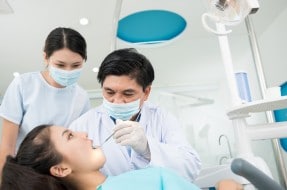Call now on0800 051 8069
Rise in dental negligence claims relating to extraction of teeth
-
Extractions of teeth should be a simple procedure so why are dental negligence claims relating to extractions increasing?
By Ben Lees
The Dental Defence Union (DDU), one of the leading defence organisations for dentists in the UK has warned dental professionals to take greater care in communicating with patients and other treating practitioners to combat the rise in dental negligence claims relating to extraction of teeth.
EXTRACTION PROCEDURE
Even though dental practitioners with training in tooth removal can carry out extractions, it is common that orthodontists or dentists will refer their patients to a dental surgeon for an extraction.
Sometimes an extraction is a simple task involving local anaesthetic, forceps and some gentle and controlled rocking movements to release the tooth. However, a surgeon may feel that general anaesthetic is necessary, particularly if a number of extractions are necessary or an incision is required to reach an impacted tooth.
Tooth extraction is a routine procedure for most dental practitioners and complications are rarely expected. It is therefore, generally presumed that dental negligence claims for extraction errors would be rare.
PROBLEMS WITH EXTRACTIONS
Unfortunately, despite the routine nature of a tooth extraction, mistakes in carrying them out are increasing year by year.
In 2006 there were 21 dental negligence claims from patients who had discovered their extracted tooth was removed in error and, in 2011; this figure had more than doubled to 57 claims.
A total of 138 claims were made between 2006 and 2011 and these consisted of either the removal of:
• a tooth that was not the source of the pain;
• the wrong tooth after failing to read the charts correctly;
• a tooth that could have been saved with further treatment; or
• a tooth without ensuring the patient had given fully informed consent.
For the 56 dental negligence claims that have settled, the DDU have paid £413,000 in compensatory awards. It is also estimated that 51 claims remain active.
The DDU state that the dominant reason for these errors is a lack of communication between patients and dentists, especially when it comes to orthodontic extraction. According to the DDU, 24 of the cases they had received between 2006 and 2011 were concerning communication errors.
It is, of course, understandable that the DDU are concerned about the number of mistakes that are being made by their members. This is especially worrying in light of the fact that a similar review took place in 2004 where it was reported by the Medical Defence Union that tooth extraction errors were on the rise. The Head of the DDU at the time, Rupert Hoppenbrouwers, stated:
“Wrong tooth errors usually occur as a result of poor communication within a dental practice or between dentists in different practices”
Therefore, in 2004, the DDU issued advice for professionals to avoid miscommunication. They reminded practitioner’s to review patient’s clinical notes, radiographs and any consent forms necessary, to ensure they are in agreement.
OUR EXPERIENCE
Despite these warnings and thorough procedures, it appears errors continue to be made when they could have been easily avoided.
We acted for one client who awoke from a general anaesthetic to discover that a tooth had been removed from the opposite side of his mouth in error. To compensate him for his pain and suffering and to pay for future treatment, such as an implant to replace the tooth, our Dental Negligence Team negotiated a significant out of court settlement award for this Client.
We advise those who have concerns about their dental treatment to seek the advice of their dentist and/or another dental professional. It is also beneficial to obtain advice from an experienced dental negligence lawyer who will be in a position to independently review the circumstances and give the most appropriate advice and claim compensation if you have suffered unnecessary pain and require further treatment as a result of negligence.







